On the right track
In a city with over 7 million people, I was of course bound to meet some of them. When we discussed Chinese stereotypes in class, we learned the stereotype of the people in Shandong Province is that they are very ??, very warm and enthusiastic, and I think for a great part that is true. The people overall seem really friendly and eager to help, some even going out of their way to do so, and they’re almost always curious to know where I’m from. They’re also so free with compliments, often commenting how good my Chinese is even when I’ve said no more than three words! However, I think a lot if not all of my interactions with the local people are influenced by the fact that I’m not only a foreigner, but also European, who also happens to speak Mandarin. The number of westerners in Jinan is quite small, so I attract curious looks and stares almost wherever I go. Especially little kids have a habit of pointing and saying, ‘foreigner!’ I’ve never liked to be the center of attention, so this was something I really had to get used to.
Interestingly enough, the first assumption the people here often make is that I’m Russian. I think one of the strangest encounters I had here was a Chinese woman who started speaking Russian to me (I think, she spoke so fast!), and who lost all interest after I explained I was from Holland. Another time, a young Chinese woman didn’t even bother to ask where I was from, and when the friend I was with asked why, the woman said she knew I must be either English or American.
The second assumption they often make is, not surprisingly, that I don’t understand or speak Mandarin. It’s always fun to prove that wrong, though this sometimes backfires when it’s seen as a cue to
Life in Jinan: the people
July 17, 2016
|
Jinan
In a city with over 7 million people, I was of course bound to meet some of them. When we discussed Chinese stereotypes in class, we learned the stereotype of the people in Shandong Province is that they are very ??, very warm and enthusiastic, and I think for a great part that is true. The people overall seem really friendly and eager to help, some even going out of their way to do so, and they’re almost always curious to know where I’m from. They’re also so free with compliments, often commenting how good my Chinese is even when I’ve said no more than three words! However, I think a lot if not all of my interactions with the local people are influenced by the fact that I’m not only a foreigner, but also European, who also happens to speak Mandarin. The number of westerners in Jinan is quite small, so I attract curious looks and stares almost wherever I go. Especially little kids have a habit of pointing and saying, ‘foreigner!’ I’ve never liked to be the center of attention, so this was something I really had to get used to.
Interestingly enough, the first assumption the people here often make is that I’m Russian. I think one of the strangest encounters I had here was a Chinese woman who started speaking Russian to me (I think, she spoke so fast!), and who lost all interest after I explained I was from Holland. Another time, a young Chinese woman didn’t even bother to ask where I was from, and when the friend I was with asked why, the woman said she knew I must be either English or American.
The second assumption they often make is, not surprisingly, that I don’t understand or speak Mandarin. It’s always fun to prove that wrong, though this sometimes backfires when it’s seen as a cue to
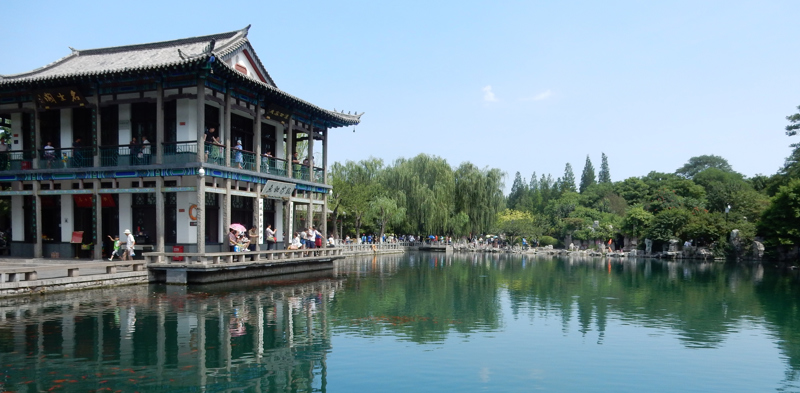
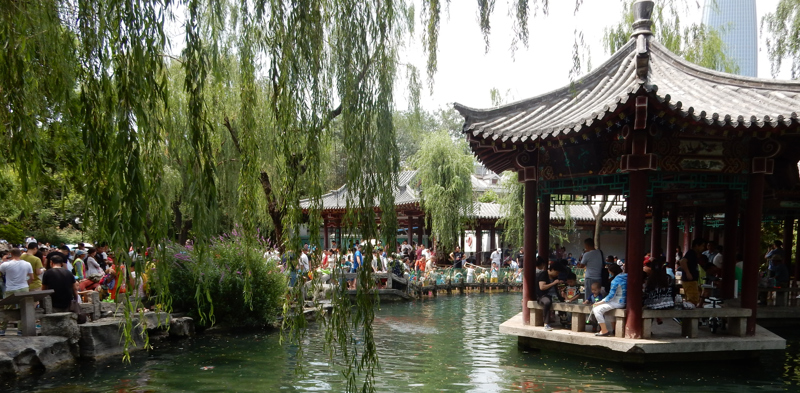
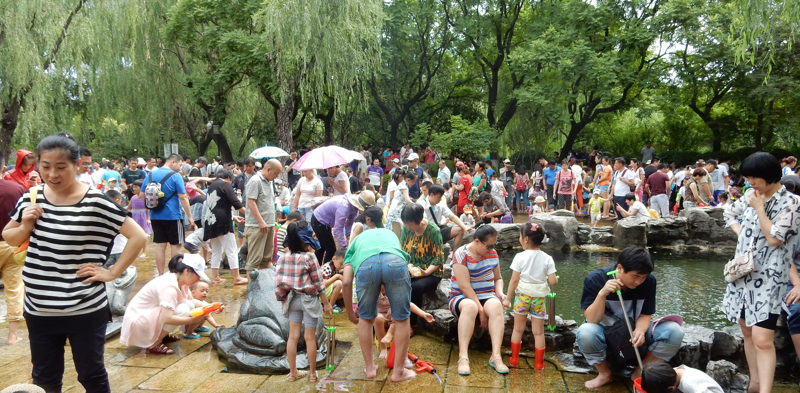
start babbling away at full speed, often with an accent. At those moments I feel like I’m just pretending I speak any Mandarin at all! Though at other times, people approach me to try out their English, which is sometimes so broken or heavily accented that I understand better when they speak Mandarin. Oh, the confusing world of languages… But for every miscommunication, there is also a conversation that went right, which still feels like a small victory every time.
Of course, the people I was most in contact with this last semester were the teachers and my classmates. We had four different courses, which meant four different teachers, all women and very nice. One of them was also the coordinator of our class and she liked to do something extra, like taking us to have a very fancy lunch at the school canteen or teaching us how to play mah-jong. There were nineteen students in my class (though it quickly became very rare to have everyone show up for class every time) and together we were quite a diverse bunch: Koreans, Russians, a guy from Ukraine, a girl from Thailand, one from France, another from Mongolia and me. During class, we would speak Chinese (and it was very interesting to hear Mandarin spoken with different foreign accents, just imagine someone speaking Chinese with a French accent!), but during break time it always became a mishmash of languages. I’ve not only learned new things about a lot of countries, but encountered interesting views they had of Holland as well: a Korean girl once asked me if we used chopsticks in Holland, one Russian girl thought Dutch, English and German were all national languages of Holland and I had a hard time explaining to a Korean guy how my Belgian roommate and I could understand each other even when we were both speaking our own language.
We discussed some interesting cultural differences as well, like how
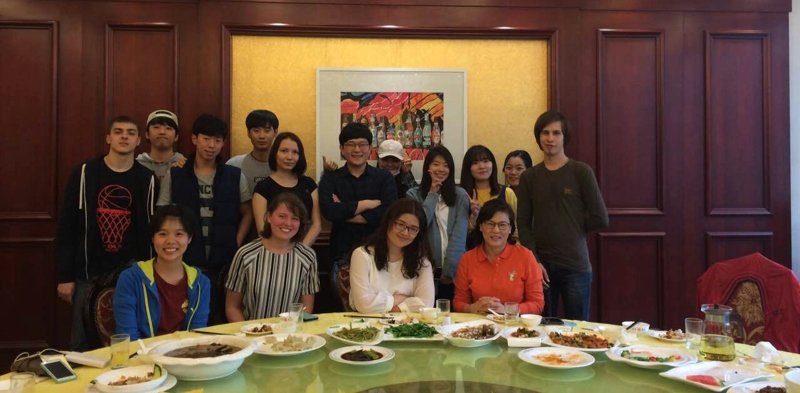
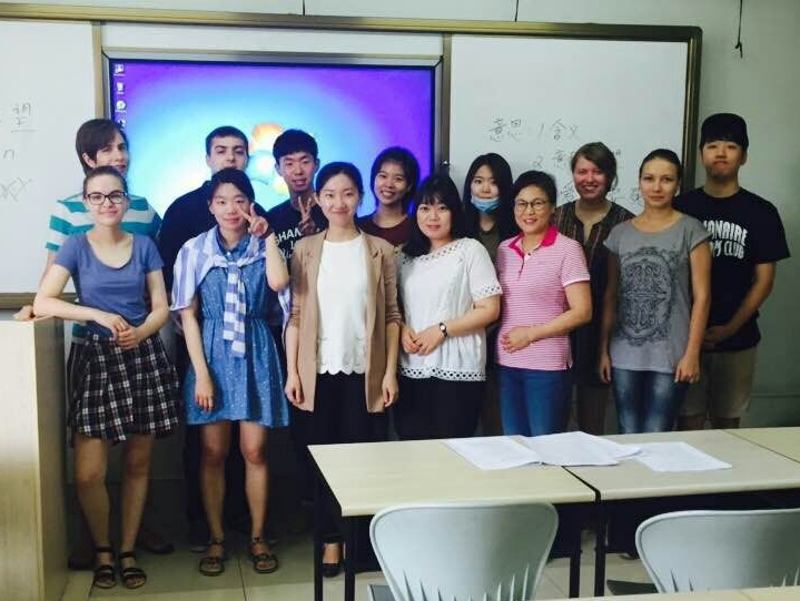
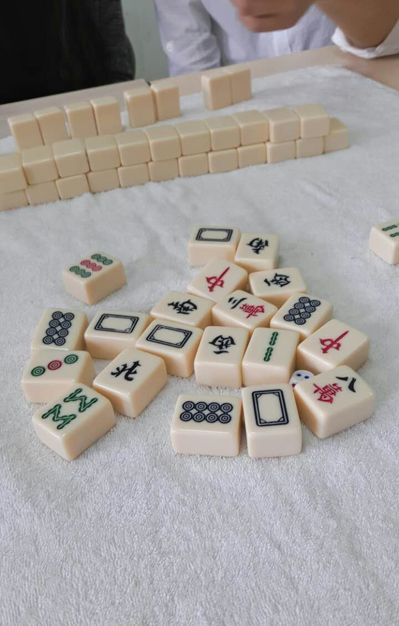
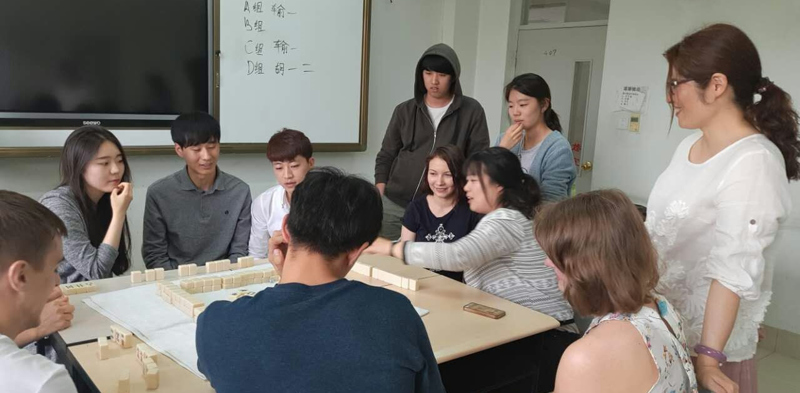
the Korean students agreed with the teachers that is was perfectly normal to deny any compliments people gave you, of for parents to say their children are ugly and stupid, what we in Holland would see as a very strange sense of modesty. When we had to describe each other in class, one student commented on the redness of my face – which of course immediately caused me to blush when everyone turned their eyes on me. Later two Korean guys asked me if it meant I was angry, and they didn’t seem convinced even when I told them I really wasn’t. Then there is the fact that white skin is a beauty ideal in Asia, the whiter the better it seems. Whenever the sun comes out, people take out their umbrella’s en masse to protect their skin. One teacher was very surprised to hear that in the West, we think tanned skin is beautiful instead, while I in my turn was puzzled by the fact that some of the Korean girls in our class used make-up to make their face appear whiter.
The Korean students surprised me in another way as well. Most of them, especially the girls, were very timid and quiet during class, speaking very softly and hardly ever raising their hand. Outside of class though, they would suddenly turn into very talkative, curious and enthusiastic people with a lot of humour. They liked to ask me whether I could distinguish Chinese, Korean and Japanese people, after which they admitted they themselves couldn’t always distinguish them. Or they’d ask me what hello in Dutch was, and were then almost disappointed because of how the Dutch hallo is practically the same.
Another thing I want to mention is, whenever I would talk with a Chinese person about China, sooner or later they would always say that there are too many Chinese people. I can’t be the judge of that, but I think nobody can deny that there are many, many people in China. You see it in the daily traffic jams, at train stations, or during
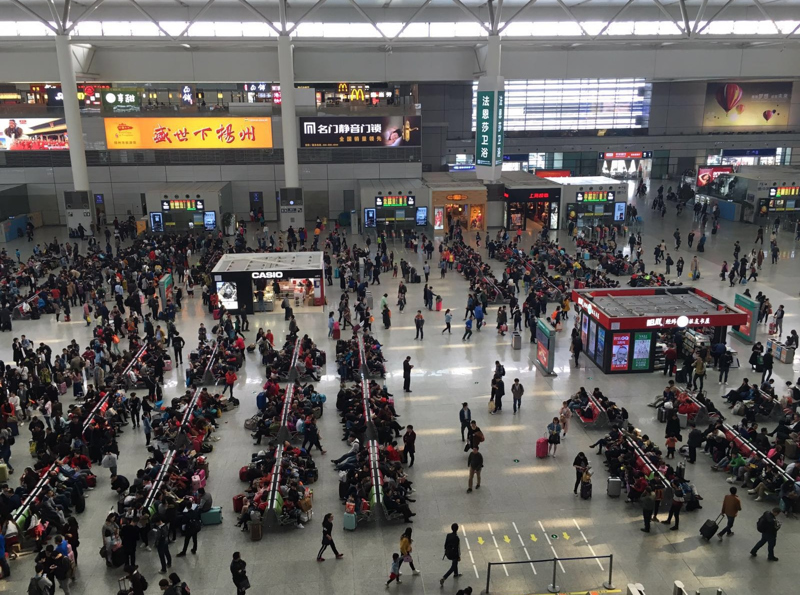
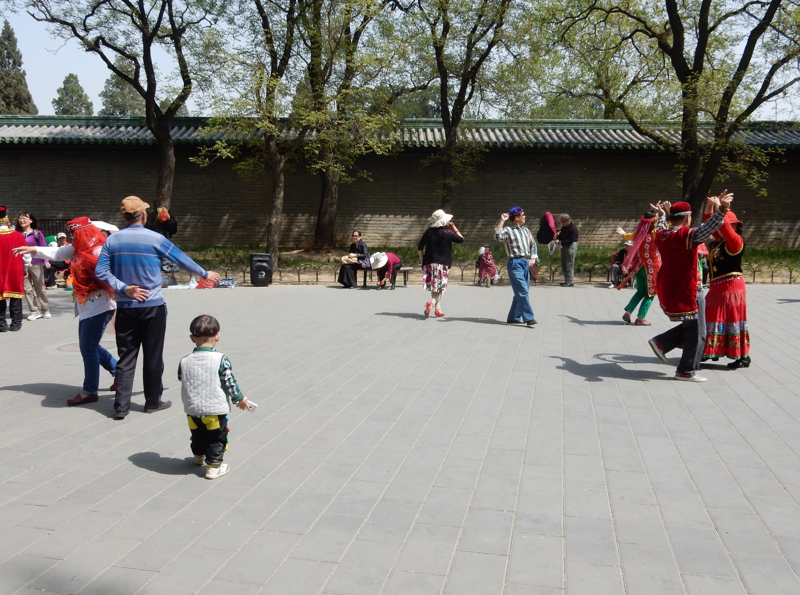
weekends in the supermarkets and parks or just on the streets. You could ask yourself, what do all those people do, where do they work? I think China has become quite creative when it comes to creating jobs – though whether this is a good thing or not, I can’t say. I remember that in the beginning I was surprised by how clean the streets were, but I soon found out how many people work as street sweepers, sweeping every piece of trash or leaf or even spilled water away. In the supermarket, a job can mean standing at the entrance and welcoming every customer, or keeping watch at the escalator, or stamping the receipt of every customer before they leave. In many shops and even in the office that manages our compound, there is usually a group of people standing about, while it seems only one or two of them have actually something to do.
Something I love about Chinese culture and people is the fact that old people have almost no inhibitions. You can encounter them practising tai chi in the park early in the morning, listening to or making music, singing alone or in groups, dancing freely, with or without partner. I especially like the trio of old women who would practice their movements with swords, who I’d sometimes see on campus when I had morning class. In the evening, there was often a group of elderly women dancing in a circle in our compound, all following the movements of the person in front of them. I would like to think that when I am of that age myself, I would feel as free and comfortable to dance in the park as they do.
Share your travel adventures like this!
Create your own travel blog in one step
Share with friends and family to follow your journey
Easy set up, no technical knowledge needed and unlimited storage!